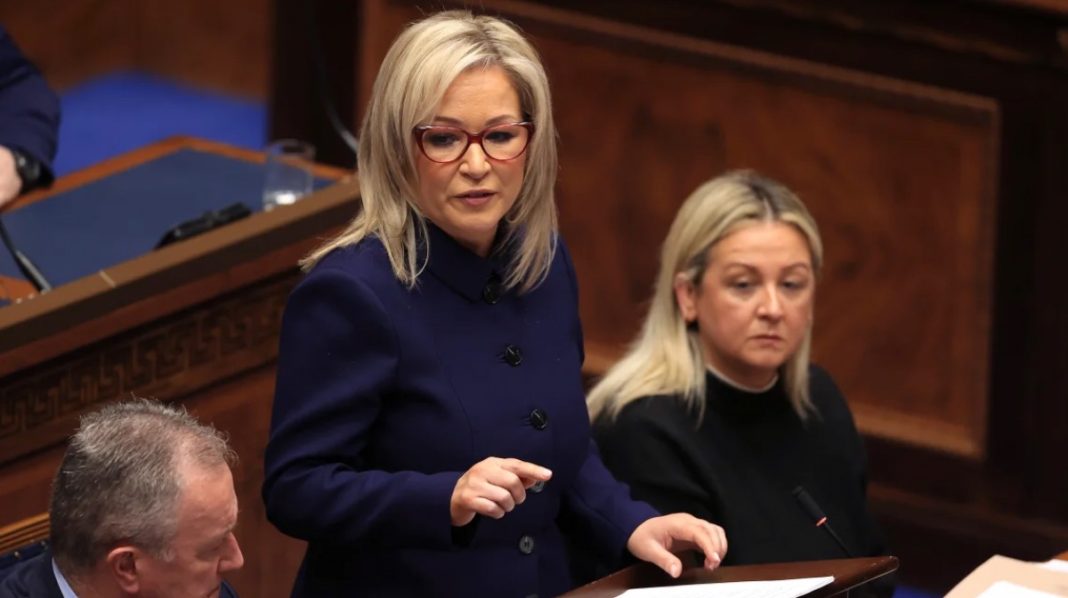BELFAST, The United Kingdom – In a landmark moment for Northern Ireland, Michelle O’Neill of Sinn Féin, the party historically linked to the Irish Republican Army (IRA), has been appointed as the First Minister, marking the end of a two-year hiatus in the power-sharing government.
This development signals a significant shift in Northern Ireland’s political landscape, as power-sharing resumes, bridging divisions that have long characterized the region.
“Today opens the door to the future. I am honoured to stand here as First Minister,” O’Neill stated in her address to lawmakers on Saturday, February 3, 2024, emphasising her commitment to serve all communities equally, irrespective of their identity as British or Unionist.
She underscored the importance of reconciliation and building a better future, acknowledging the unchangeable past but highlighting the potential for positive change.
This historic appointment follows Sinn Féin’s victory in the May 2022 elections, where they emerged as the majority party.
The resumption of the Assembly was stalled by the Democratic Unionist Party’s (DUP) refusal to participate in a power-sharing agreement, citing concerns over post-Brexit trading arrangements.
However, a recent agreement with the UK government addressed these concerns, allowing for the Assembly’s return and the appointment of DUP-nominated Emma Little-Pengelly as Deputy First Minister, a position of equal power to that of the First Minister.
In her address, Little-Pengelly reflected on the improbability of her role given her personal history with the IRA, pointing out the profound differences between her unionist stance and O’Neill’s republican background.
Yet, she emphasised the common ground they share in addressing the immediate needs of their community, such as healthcare.
The appointment of O’Neill is symbolic, representing a significant shift from Northern Ireland’s original purpose of maintaining a Protestant majority loyal to the UK.
Irish political commentator Fintan O’Toole remarked on the symbolism and its implications for Northern Ireland’s future, suggesting that while it does not immediately indicate a move towards a united Ireland, it opens up the possibility for a reimagined future.
This event occurs against the backdrop of the Good Friday Agreement of 1998, which ended decades of sectarian conflict known as “The Troubles,” by establishing a power-sharing government to ensure equal representation and powers for both pro-republican Catholics and pro-unionist Protestants.
O’Neill’s ascent to the office of First Minister, as the leader of the largest party in the Assembly, dramatises a new chapter in Northern Ireland’s history, one that seeks to move beyond entrenched divisions towards a more inclusive and promising future.







